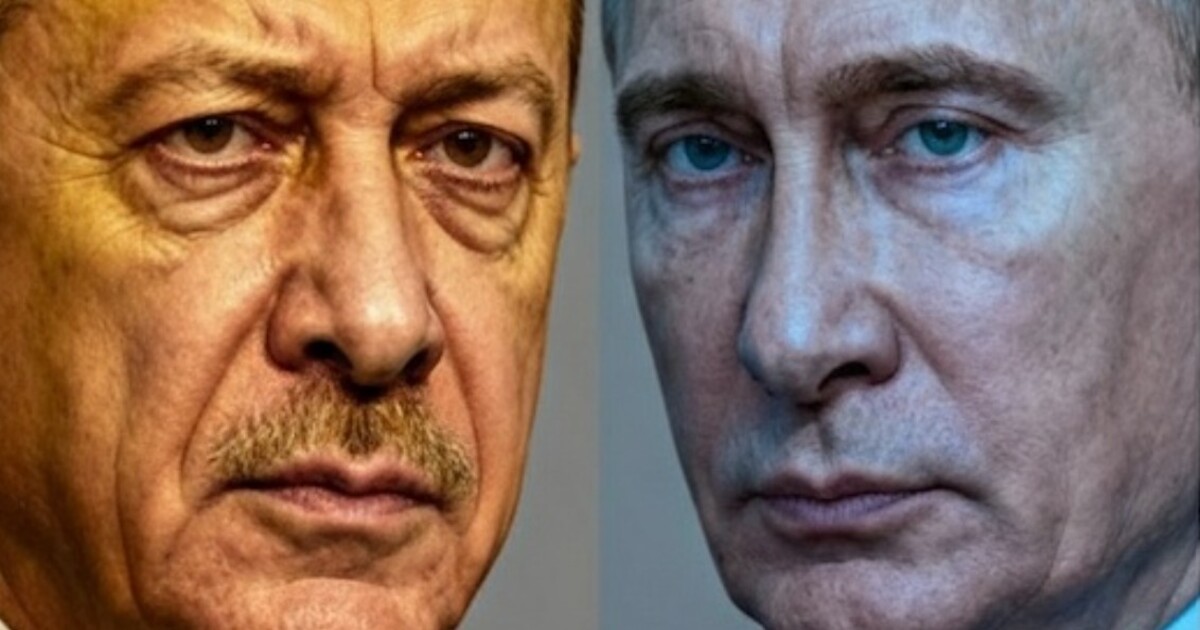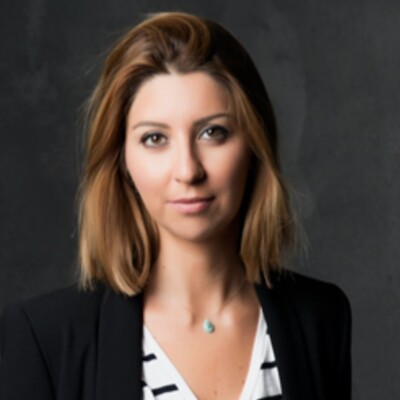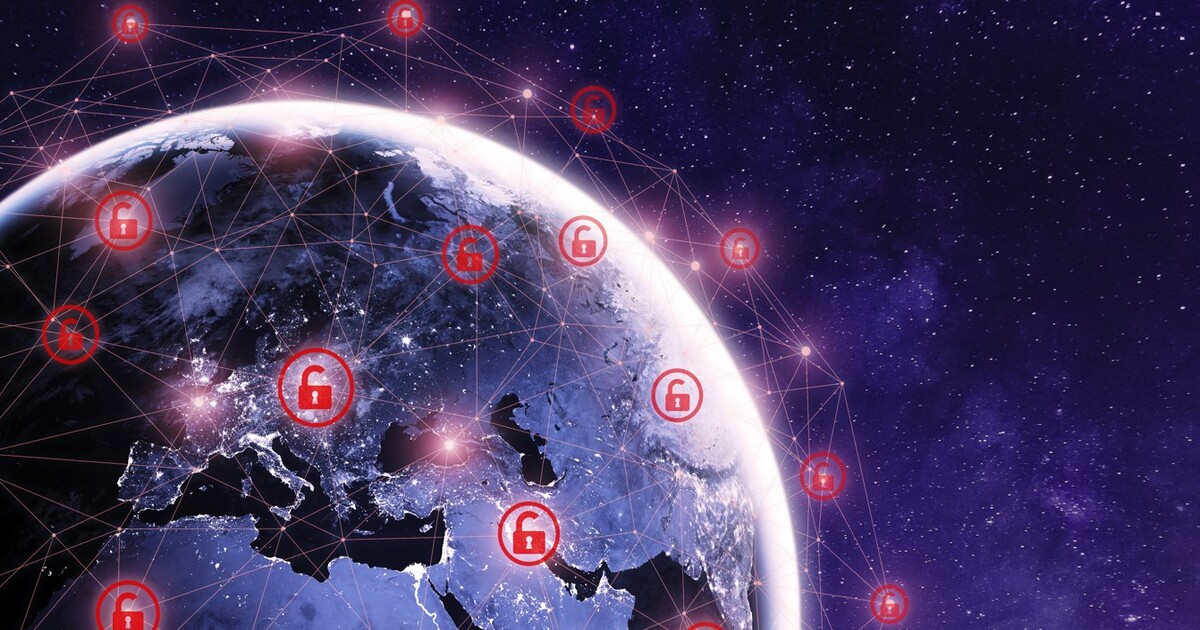Reflections of Russia on Turkey’s Road to Unfreedom
Russia pioneered the presumable politics of eternity, where succession was erased and imagination suffocated. Under Erdogan, Turkey has followed the same path.
September 25, 2025

A Global Ideas Center, Strategic Assessment Memo (SAM) from the Global Ideas Center
You may quote from this text, provided you mention the name of the author and reference it as a new Global Ideas Center, Strategic Assessment Memo (SAM) published by the Global Ideas Center in Berlin on The Globalist.
The limits of politics are bound to the imagination of a nation’s citizens. When a system is designed to bar imagination, the public stops expecting change, let alone reform.
This is the fate of diverse societies under long-ruling authoritarian leaders: Viktor Orban, Tayyip Erdogan and the master of the craft, Vladimir Putin.
Suffocating imagination takes years, blood and an unending stream of crises, large and small.
The sources of Turkey’s anxieties
Turkey’s anxieties rest on two sources. One is dismemberment by foreign encroachment. It is rooted in the trauma of the Ottoman collapse and the Treaty of Sèvres. The other is the fear that its secular and modern trajectory might be overturned by “backward” forces, namely Islamists.
While the first was shaped by imperial loss, the second was shaped by Kemalism. It transformed an empire into a modern republic and cast the military as the guardian of this revolution. It was the one to define threats, allies and enemies.
And yet, over the last quarter century another current, drawn from Russia, posed the greater threat to Turkey’s fragile democracy.
Putin as Erdoğan’s inspiration
Think of the parallels in the two country’s contemporary political development. Erdoğan and the AKP had entered office in 2002 as outsiders, riding a wave of moral, political and economic crises from the 1990s.
Two years earlier in Russia, Putin had secured the presidency with an absolute majority. He was aided by a mix of lopsided media coverage, tampered vote counts and the atmosphere of the Second Chechen War.
How to move beyond precariousness?
The AKP’s first decade in power was precarious. It survived by aligning itself with the European Union, the Gülen movement and liberal intellectuals.
However, by the early 2010s, it began the work of state capture—through sham trials like Ergenekon and Balyoz (Sledgehammer). These quasi-judicial procedures reshaped the military and security apparatus and secured media ownership through the transfer of major groups to AKP loyalists.
That process has since been cemented. Even so, political imagination remained alive among the Turkish public as the decade closed.
Toward the politics of eternity?
The asphyxiation of politics in Turkey began when the principle of succession was undermined. One of the most prominent thinkers of our time, Oxford-educated historian of Russia, Timothy Snyder calls this the “politics of eternity.” Under such an approach, power never changes hands even if elections are held.
While other terms exist in political science, Snyder’s framing captures the symmetry between Russia and Turkey’s path to unfreedom very well.
Putin’s embrace of “managed democracy”
When Putin secured his March 2000 victory, “managed democracy” was born. Snyder explains that Vladislav Surkov, a half-Chechen PR strategist and Yeltsin’s deputy chief of staff, orchestrated the stagecraft.
He turned a little-known candidate into a national figure by manufacturing crises, allowing Putin to consolidate real power. Surkov would later refine this technique as he rose through Putin’s ranks.
Political succession is the cornerstone of political imagination
In the politics of eternity, succession had to be neutralized.
As Timothy Snyder puts it: “Functional states produce a sense of continuity for their citizens. If states sustain themselves, citizens can imagine change without fearing catastrophe. The mechanism that ensures that a state outlasts a leader is called the principle of succession. A common one is democracy. The meaning of each election is the promise of the next one. Since each citizen is fallible, democracy transforms cumulative mistakes into a collective belief in the future.”
Centralization, personification and idealization: The pillars of Russian statehood
Surkov, together with the fascist Russian ideologue Aleksandr Dugin, is well known in Turkey and embraced by Eurasianists within the security establishment. He framed the “pillars of Russian statehood” as centralization, personification and idealization.
That means the state must be unified, authority embodied in one individual and that person must be glorified. By glorifying the ruler, the process of succession could be erased. Democracy disappeared with it.
Replicated in Turkey after 2010
These pillars were replicated in Turkey after 2010. Erdoğan branded protests and opposition as treacherous, foreign-backed and illegitimate and he escalated the level of domestic repression year by year.
Let me be clear: The point here is neither to equate Russia and Turkey in a grand theory of democratic breakdown nor to invoke a conspiratorial polycrisis argument. Rather, I aim to show how authoritarian techniques have diffused and been adapted.
Timothy Snyder’s view applied to Turkey
“The road to unfreedom is the passage from politics of inevitability to the politics of eternity,” writes Snyder.
Turkey reached halfway in June 2015, when Erdoğan’s AKP lost its majority, largely because of the rise of the Kurdish HDP during the peace process. Erdoğan did not concede. With Devlet Bahçeli’s backing, coalition talks were sabotaged, parliament declared unworkable and elections rerun. By November, the AKP had regained control. Unsurprisingly, the peace process had collapsed.
Two years later, the 2017 referendum converted Turkey into a hyper-presidential system. Allegations of irregularities were brushed aside. Erdogan dismissed them with a Turkish proverb: atı alan Üsküdar’ı geçti—“the one who seized the horse has already crossed Üsküdar.”
The official result was barely 51 percent, yet no investigation was permitted.
An AKP shock defeat in Istanbul’s 2019 mayoral election
In March 2019, Istanbul’s mayoral election delivered a shock defeat. CHP candidate Ekrem İmamoğlu won. Erdoğan once again did not concede. He forced a rerun. İmamoğlu won again, this time with a greater margin.
For a moment, political imagination flickered back to life. In the 2023 local elections, İmamoğlu triumphed again and hope grew stronger.
No one foresaw how quickly this ray of hope would be destroyed. In March 2025, İmamoğlu’s university diploma was annulled and he was jailed on fabricated corruption charges, along with hundreds of municipal staff.
Since then, there have been frequent raids and lots of CHP mayors across the country have been arrested. The goal is to brand İmamoğlu as the head of organized crime and replace elected mayors with state appointees—party loyalists masquerading as administrators.
Conclusion
As in Putin’s Russia, Erdoğan’s oligarchic party-state has rendered change not only impossible but unthinkable. The greatest danger is the suffocation of any prospect of a change of political power.
And yet, the only way back from the road to unfreedom is for us Turks to restore our political imagination. Every empire and republic that abandoned succession imagined its eternity secure.
None endured. The future will not be shaped by the permanence of authoritarian leaders’ order if political imagination is revived.
Takeaways
As in Putin’s Russia, Erdoğan’s oligarchic party-state has rendered change not only impossible but unthinkable. The greatest danger is the suffocation of any prospect of a change of political power.
The only way back from the road to unfreedom in Turkey is to restore our political imagination. Every empire and republic that abandoned succession imagined its eternity secure. None endured.
The asphyxiation of politics in Turkey began when the principle of succession was undermined. One of the most prominent thinkers of our time on Russia, Timothy Snyde,r calls this the “politics of eternity.”
Over the last quarter century, ever since Putin's ruthless rise, adopting Russia has posed the greatest threat to Turkey’s fragile democracy.
A Global Ideas Center, Strategic Assessment Memo (SAM) from the Global Ideas Center
You may quote from this text, provided you mention the name of the author and reference it as a new Global Ideas Center, Strategic Assessment Memo (SAM) published by the Global Ideas Center in Berlin on The Globalist.


